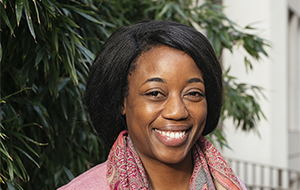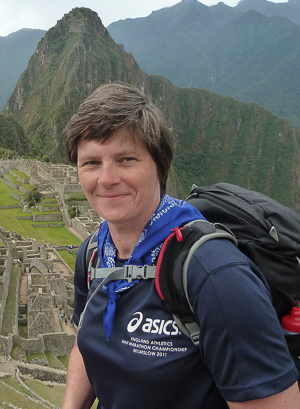-
-
- Advancement of the Professions Committee
- Standards Committee
- Audit and Risk Committee
- Education Committee
- Disciplinary Committee
- Charter Case Committee
- Preliminary Investigation Committee and Disciplinary Committee Liaison Committee
- Registration Committee
- Preliminary Investigation Committee
- Paper classification: some definitions
-
-
-
-
- About extra-mural studies (EMS)
- EMS requirements
- Information for vet students
- Information for EMS providers
- Information for vet schools
- Temporary EMS requirements
- Practice by students - regulations
- Health and safety on EMS placements
- EMS contacts and further guidance
- Extra-mural studies fit for the future
-
-
- Code of Professional Conduct for Veterinary Surgeons
- Code of Professional Conduct for Veterinary Nurses
- Contact the Advice Team
- XL Bully dog ban
- 'Under care' - guidance
- Advice on Schedule 3
- Controlled Drugs Guidance – A to Z
- Dealing with Difficult Situations webinar recordings
- FAQs – Common medicines pitfalls
- FAQs – Routine veterinary practice and clinical veterinary research
- FAQs – Advertising of practice names
- GDPR – RCVS information and Q&As
-
- Accrediting veterinary degrees
- Accrediting veterinary nursing qualifications
- Reasonable adjustments for student vets
- Health and disability in veterinary medicine study and practice
- The role of the veterinary schools and the RCVS
- Reasonable adjustments and the Equality Act 2010
- Reasonable adjustments and Day One Competences
- Examples of reasonable adjustments for vet students
- Annex
- Reasonable adjustments for student vets - summary
- Reasonable adjustments for student veterinary nurses
- Health and disability in veterinary nurse education and training
- Reasonable adjustments for students and the UK disability discrimination legislation
- Educational assessment of veterinary nurses
- Roles of key stakeholders in the application of reasonable adjustments
- Examples of reasonable adjustments for vet nurse students
- Embracing reasonable adjustments for student vet nurses - summary
- External review of the RCVS by ENQA
- Requirements for remote and online student assessments
First black Council member elected as Junior Vice-President
11 March 2019
The Royal College of Veterinary Surgeons (RCVS) Council has elected its first black Council member to be Junior Vice-President of the College for 2019-20, making her the first person from a minority ethnic background to be elected to the Officer Team in our 175-year history.
 Mandisa Greene, who was first elected to Council in 2014 and was re-elected last year, is currently Chair of the Practice Standards Group, which coordinates the RCVS Practice Standards Scheme, and a member of the Primary Qualifications Subcommittee and the Legislation Working Party. She has also served on Standards Committee and as well as chairing the Extra-Mural Studies (EMS) Coordinators Liaison Group.
Mandisa Greene, who was first elected to Council in 2014 and was re-elected last year, is currently Chair of the Practice Standards Group, which coordinates the RCVS Practice Standards Scheme, and a member of the Primary Qualifications Subcommittee and the Legislation Working Party. She has also served on Standards Committee and as well as chairing the Extra-Mural Studies (EMS) Coordinators Liaison Group.
The election of Mandisa (pictured above right) took place at the RCVS Council meeting on Thursday 7 March, the day before the 175th anniversary of the granting of a Royal Charter to the RCVS by Queen Victoria, recognising the ‘veterinary art’ as a profession and giving the College powers to administer examinations to the students at London and Edinburgh veterinary colleges, which they would need to pass to become veterinary surgeons.
Born in the UK, and raised in Trinidad & Tobago in the West Indies from the age of two, Mandisa moved back to the UK aged 18 to study for a BSc in Biological and Medicinal Chemistry at the University of Exeter. She then gained her veterinary degree from the Royal (Dick) School of Veterinary Studies at the University of Edinburgh in 2008.
Since graduating, her interests have lain in small animal practice and emergency and critical care, and she has worked as a veterinary surgeon in a number of practices in the West Midlands. She currently works in the Staffordshire town of Newcastle-under-Lyme and lives in Stoke-on-Trent. She is a published author, having been the researcher on a paper about genomic variations in Mycobacterium published in BMC Microbiology.
Commenting on her election as Junior Vice-President (JVP), Mandisa said: “I am humbled that my peers and colleagues elected me as Junior Vice-President and fully appreciate that, as the first ethnic minority member of Council, this is an historic appointment, especially when there is so much discussion over the importance of diversity and inclusion both within the profession and wider society.”
Commenting on diversity within the veterinary profession, she said: “Growing up in Trinidad we would always have animals in our home as my mother would often arrive with extra pups and kittens from litters around our neighborhood. This would involve our family, mainly dad and me, regularly visiting our local vet sourcing preventative and supportive care. I was used to seeing veterinary surgeons and veterinary staff who looked like me so it never occurred to me that this was a profession that could be inaccessible, being a veterinary surgeon was something that I always wanted to do.
“It was only when I returned to the UK that being a veterinary surgeon from an ethnic minority was seen as unusual and I realised that young people from minority ethnic backgrounds might not consider a veterinary career as a result. However, I am a strong believer in ‘if you see it, you can be it’ and so I hope that, with my election, if young people from those backgrounds can see that there are people like them working as veterinary professionals, then it might open it up as an option for them.
“I am also concerned about diversity more broadly, including making the veterinary professions more open to people with disabilities, looking at socio-economic and class backgrounds and also the situation of our European colleagues, some of whom I know have suffered abuse over the last few years and may feel uncertain about their future in the UK.
“Whilst my background may be unique, I would say my experiences as a small animal practitioner who has a young family and wears many other hats underscores the commonalities amongst us, so I am also interested in issues such as practitioner wellbeing, work-life balance, out-of-hours work and practice standards.”
In addition to Mandisa being elected as JVP, the current holder of that office, Dr Niall Connell, was also confirmed as President for 2019-20, and Dr Christopher (Kit) Sturgess was re-elected as RCVS Treasurer.
Regarding committees, Dr Kate Richards was re-elected as the Chair of Standards Committee, while Professor David Argyle (pictured right) was elected as Chair of the Advancement of the Professions Committee, taking over from Professor Gary England. Professor Argyle is the Head of Veterinary Clinical Studies at the University of Edinburgh and has been its appointed member on RCVS Council since 2011. He is an RCVS and European Specialist in Veterinary Oncology, Diplomate of the European College of Internal Medicine in Oncology and Co-scientific Editor of the Journal of Veterinary and Comparative Oncology. His major research interests are cancer and stem cell biology.
 Furthermore, Dr Susan Paterson (pictured right) was elected as Chair of the Education Committee, taking over from Professor Susan Dawson. Sue qualified from Cambridge in 1984 and, after a time in mixed practice in Devon, she took her Certificate then British and European Diplomas in Veterinary Dermatology and has been an RCVS and European Specialist for more than 20 years. She has recently been elected as a Fellow of the RCVS for meritorious contributions to clinical practice.
Furthermore, Dr Susan Paterson (pictured right) was elected as Chair of the Education Committee, taking over from Professor Susan Dawson. Sue qualified from Cambridge in 1984 and, after a time in mixed practice in Devon, she took her Certificate then British and European Diplomas in Veterinary Dermatology and has been an RCVS and European Specialist for more than 20 years. She has recently been elected as a Fellow of the RCVS for meritorious contributions to clinical practice.
Sue is currently the Veterinary Director of Veterinary Dermatological Ltd and Virtual Vet Derms, a veterinary telemedicine company, as well as the Senior Vice-President of the European Society of Veterinary Dermatology and Vice-President of the British Small Animal Veterinary Association.
More information about RCVS Council and its members can be found on the dedicated RCVS Council website.